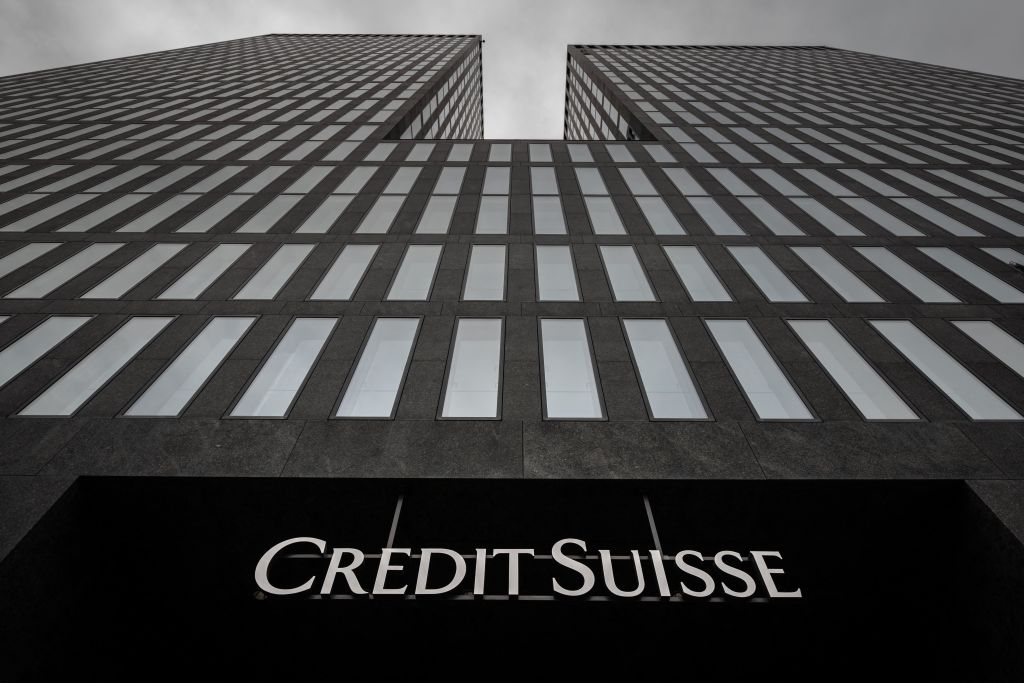Finance: Europe, U.S. move to contain bank crisis
Is it still too early to predict the end?

A free daily email with the biggest news stories of the day – and the best features from TheWeek.com
You are now subscribed
Your newsletter sign-up was successful
The smartest insight and analysis, from all perspectives, rounded up from around the web:
A shotgun marriage between UBS and its blundering Swiss rival Credit Suisse this week calmed world markets, but it's still too early to predict the end of this banking crisis, said Duncan Mavin in The Washington Post. "Nine days passed between the collapse of Silicon Valley Bank and the demise of Credit Suisse," a 166-year-old institution deemed "systemically important" to the global financial sector. "Though the bank has been the source of scandal for years, its capital buffers" had appeared solid. It was done in by its terrible reputation "in the age of social media, when fear can spread like a virus." Last week, the Swiss central bank offered Credit Suisse a $54 billion backstop, but it wasn't enough to stop clients from fleeing. A hastily arranged sale to competitor UBS for $3 billion, a fraction of the bank's value just a few days earlier, eased some anxiety, but the global financial system is sprawling and interconnected. "We might be much closer to the start of the turmoil than its end."
Credit Suisse "was not laid low by fears about bad assets, which was what killed long-lived brokers Bear Stearns and Lehman Brothers," said Paul J. Davies in Bloomberg. It was vulnerable because of concerns about its long-term profitability and strategy. But doing nothing would have meant a death spiral for Credit Suisse and "mayhem for the markets." UBS is a reluctant rescuer, but "the Swiss government added a 100 billion franc ($109 billion) backstop to the takeover agreement" to protect it in a "fragile" market. The troubles with the European banks are linked to the collapse of Silicon Valley Bank and Signature Bank in the U.S., but this is still not a 2008 redux, said Neil Irwin in Axios. "The root problem isn't bad loans." It was the Federal Reserve's rapid tightening of interest rates, which "created paper losses for banks that made loans or bought long-term bonds." The Fed can easily "relent and consider cutting rates, easing the pressure on bank balance sheets."
The Week
Escape your echo chamber. Get the facts behind the news, plus analysis from multiple perspectives.

Sign up for The Week's Free Newsletters
From our morning news briefing to a weekly Good News Newsletter, get the best of The Week delivered directly to your inbox.
From our morning news briefing to a weekly Good News Newsletter, get the best of The Week delivered directly to your inbox.
It never should've gotten to this point, said Zachary Karabell in Time. The meltdown was the result of "reckless policy" by the Fed and its chairman, Jerome Powell, who has engaged in a "zealous crusade" to defeat inflation. Yes, inflation is a problem. But does a 6 percent price increase after a global pandemic "pose a danger sufficient to push the financial system to the brink and punish banks for not adjusting quickly enough to sharply higher rates?" Powell had plenty of chances to anticipate that, said Annie Lowrey in The Atlantic. "A number of analysts saw what was coming for SVB" — some of them sounded the alarm as early as January. Why didn't the Fed see the risk?
Despite the criticism, Powell is still not done, said Christopher Rugaber in The Associated Press. Setting aside "concerns that higher borrowing rates could worsen the turmoil gripping the banking system," the Fed pressed ahead with another quarter-point interest-rate hike this week. He is "confident that the Fed can manage a dual challenge" of cooling inflation and defusing bank turmoil. The next months will show whether that confidence is warranted.
This article was first published in the latest issue of The Week magazine. If you want to read more like it, you can try six risk-free issues of the magazine here.
A free daily email with the biggest news stories of the day – and the best features from TheWeek.com